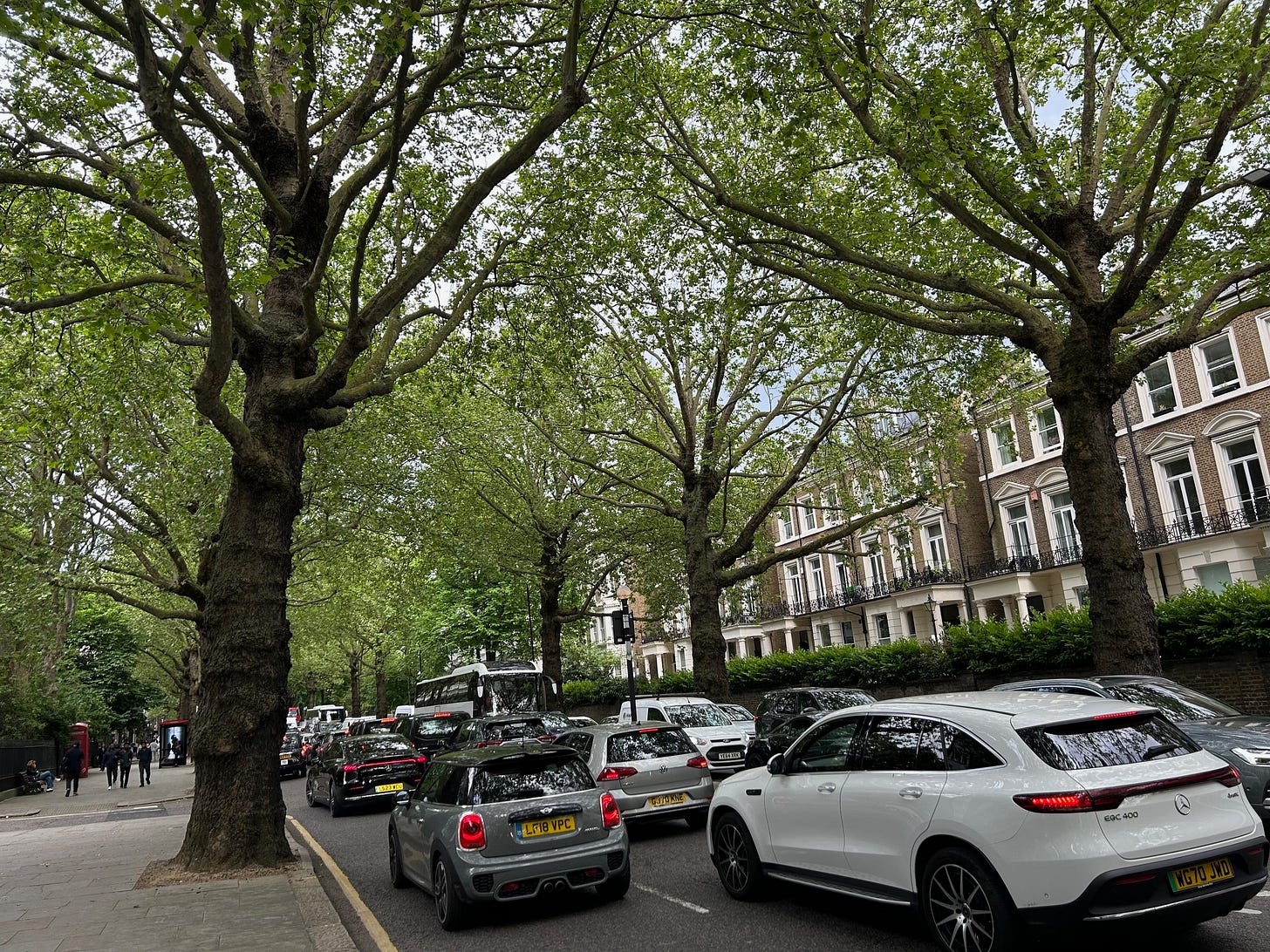Every Day I Write the Book, Part 3
Thoughts on my mother and a poem and dying and betrayal in no particular order
I’ve been walking around London (specifically Holland Park with its rows of Edwardian homes, children running along the wide pavements in uniforms, organic markets and vegan cafes) in a haze of writing problems to solve, a poem that won’t let me loose, and fragile connections between my past and present that are so powerful, they’re positively trippy.
Some lines from that poem. Louise Glück’s , “The Seven Ages”:
And like everyone, I took, I was taken
I dreamed
I was betrayed
I like the past tense of the poem. The writer looking back. I’ve been doing a lot of that, myself, this month. Looking back in order to look forward. In order to set it down, in writing. Make something out of these burbling geysers of thought. Right now, the words are often not there. I know this won’t always be true. Often, words fail me when the ideas and connections are so nascent, they are only impressions. I have to practically prod them into existence.
Here is one such prodding:
I have this sense, for example, that I have been unwittingly replicating my mother’s life. And I really haven’t thought that before. She certainly wouldn’t have thought it. Once when asked to use a word that best described her (for an high school alumni article) she chose the word, “dependable”. And even though I am often dependable, I would never have chosen it, proudly, as my one shot at describing myself to former classmates. For one thing, it sounds boring.
I have been incredibly happy during this trip. Mostly because I’ve only done what I really want to do, which is rare for me even on vacations. I’ve gotten out of bed when I felt like it. Eaten what I’ve wanted to eat. Written when I wanted. Taken long and short walks for no particular reason. I have read books in cafes and when I felt an urgent, “Well, I’d better put this away and get going”, I’ve heard myself answer, “No you don’t. You don’t have to get going.”
My mother often said (she used aphorisms like nobody’s business) that she liked the feeling of something nipping at her heels. We were a family of doers, she proudly pointed out. Not so surprising, from someone as dependable as her. But my thought now, is that the reason that she liked that feeling of having somewhere to go and things to do was because, at her core, she didn’t want too much time to think. She was terrified of dying. Always -- even when she was younger. All that doing staves off death. I have felt this. Looking at my daybook, and yes, I still keep one -- probably for the very reason that the book goes all the way through the year, leading one to believe that you’ll see the end of that year. How can you die if there are all those friends to see and graduations and weddings to attend?
But I am no longer afraid of death. Not even premature death, whatever that means (at age 63, I doubt I qualify). There are worse things. Acute dementia is worse. Untreatable pain, both mental and physical is worse. I feel like a Monty Python sketch, here.
Being completely alone is worse. Not the aloneness I’ve felt this month. Because I’ve had my own company. I have not in fact, been alone. No, I mean the aloneness my mother felt when she was incapable of voicing a coherent thought that was any more complex than, “I’m hungry” or “cold”. That’s worse than death, trust me.
I was betrayed – by my mother. She was so big, so talented, so damn smart and funny that she should have gone out in a blaze of righteous glory, unfinished projects nipping at her heels – paintings, dinner parties, travel – instead of the slow, senseless creep toward a void she couldn’t even describe. “Is this your house?” she once asked my brother, looking at the home she had lived in for a quarter of a century. “No, mom, it’s yours” my brother said. She stared at the walls, decorated with paintings she’d done over the years. “I thought it looked familiar,” she said.
I was betrayed.
It turned out, she wasn’t so dependable after all.



